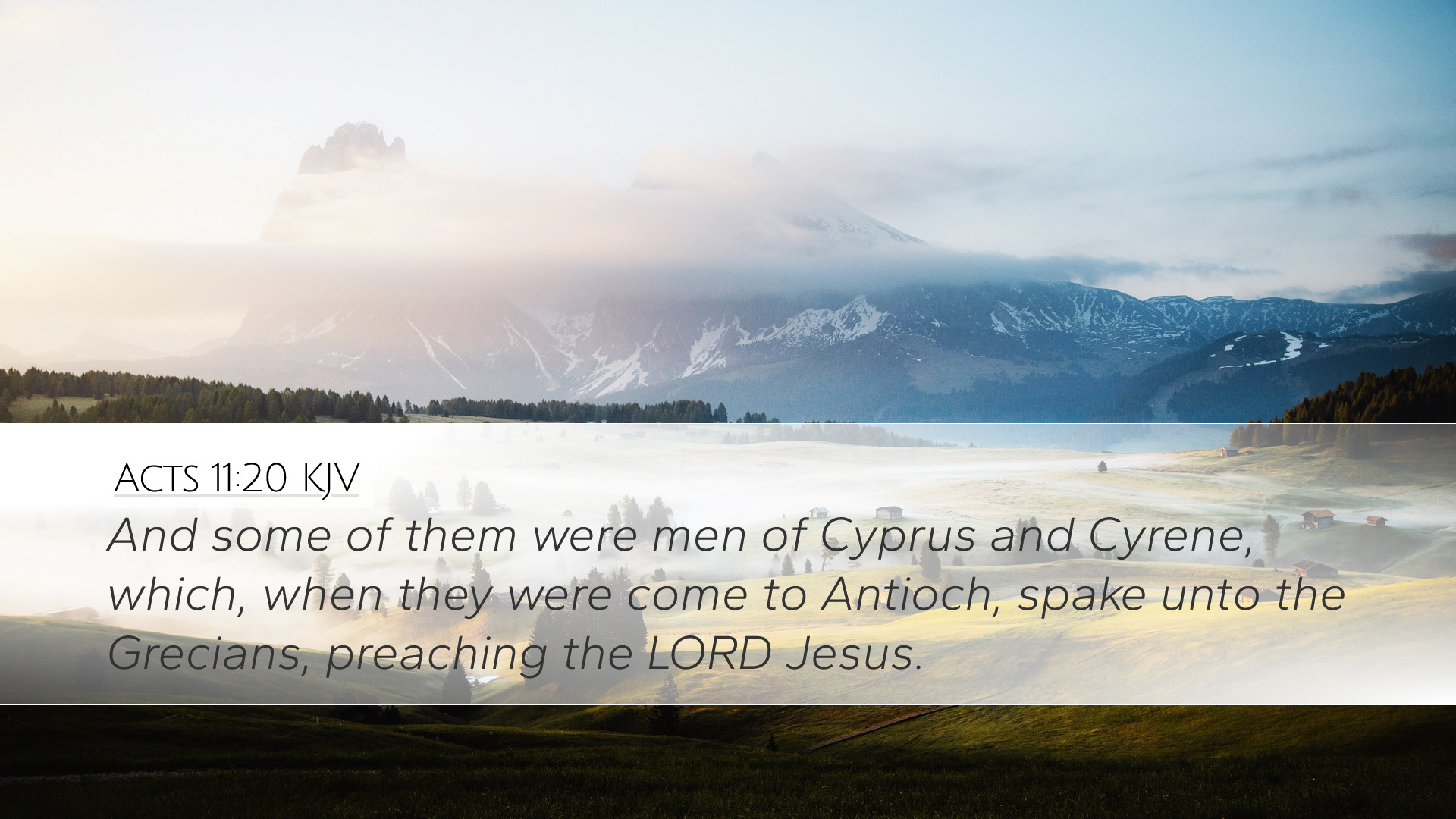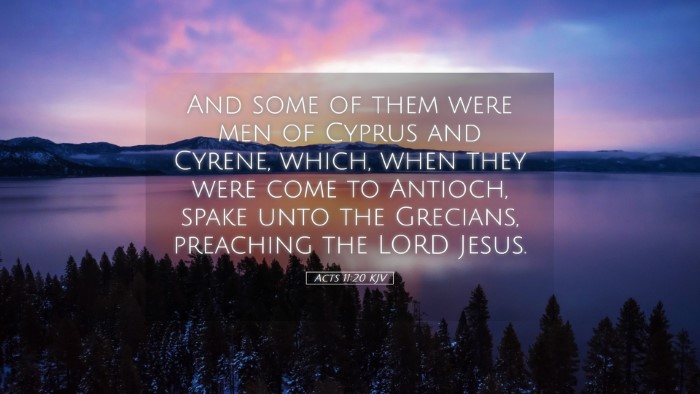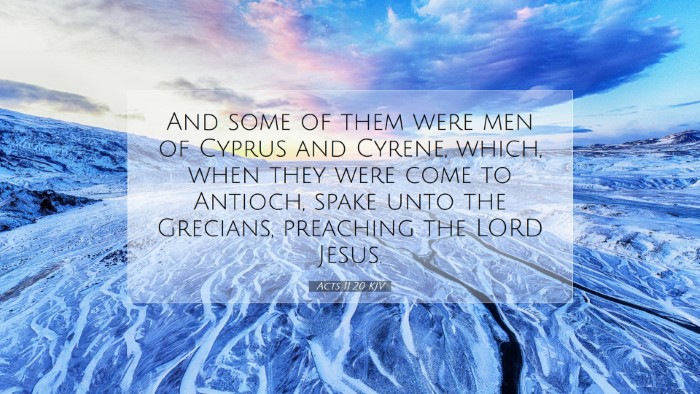Commentary on Acts 11:20
Acts 11:20 states: "But there were some of them, men of Cyprus and Cyrene, who on coming to Antioch spoke to the Hellenists also, preaching the Lord Jesus."
This verse is pivotal in the expansion of the early church as it marks a significant shift towards the inclusion of Gentile believers in the Christian faith. The insights provided by esteemed commentaries can elucidate its meaning in deeper ways.
Contextual Background
The events of Acts 11 unfold after Peter's revelation about the inclusion of Gentiles, following his encounter with Cornelius (Acts 10). The early church primarily consisted of Jewish believers; however, the mission started to broaden significantly.
Tarot of Christian Mission
As detailed by Matthew Henry, the actions of the men from Cyprus and Cyrene reflect the early understanding of Christian mission. They understood that the message of Christ was not confined to the Jews but was intended for all people. Their initiative to preach to the Hellenists illustrates the early church's evolving mission.
Insights from Public Domain Commentaries
Matthew Henry's Commentary
Henry emphasizes that these missionaries were characterized by their initiative and boldness. He writes, "They took it upon themselves to spread the Gospel, recognizing it was their duty and privilege to preach Christ to all." This act of preaching to the Hellenists highlights a significant expansion of the mission field and the willingness of believers to cross cultural barriers.
Albert Barnes' Analysis
Barnes notes the diversity of the early Christian community, stating, "The inclusion of Cypriots and men from Cyrene indicates the multicultural nature of the early church." This reflects the Spirit’s readiness to reach all ethnicities, urging the early Christians towards a universal mission.
Adam Clarke's Exegesis
Clarke provides vital observations regarding the distinction between Hellenists and Jews. He mentions that the Hellenists—often Greek-speaking individuals who embraced the Jewish faith—were notably open to the message of Jesus Christ. Clarke emphasizes, "Their previous exposure to Jewish religious thought made them receptive to the Gospel."
Theological Implications
This passage raises several theological themes pertinent to understanding missions and community dynamics today:
- Inclusivity of the Gospel: Acts 11:20 strongly supports the notion that the Gospel transcends cultural and ethnic boundaries.
- Role of Individual Believers: The men from Cyprus and Cyrene exemplify the theological principle that every believer has a role in the Great Commission.
- Cross-Cultural Evangelism: Developing an understanding of how to contextualize the Gospel for different audiences is a recurring theme throughout the New Testament.
Practical Applications for Today
For pastors, students, theologians, and Bible scholars, the implications of preaching to the Hellenists emphasize the importance of:
- Evangelistic Outreach: Engaging diverse groups within communities to promote the message of Christ.
- Cultural Sensitivity: Tailoring the message in ways that resonate with various cultures while maintaining the integrity of the core Gospel message.
- Empowerment of Lay Leaders: Encouraging ordinary believers to take an active role in evangelism, much like the men from Cyprus and Cyrene.
Conclusion
Acts 11:20 is a powerful testament to the early church's growth beyond Jewish confines and serves as an enduring lesson for contemporary believers. The insights from Matthew Henry, Albert Barnes, and Adam Clarke provide a multi-faceted view, emphasizing that earnest and bold evangelism is necessary for reaching all nations with the message of Christ.


